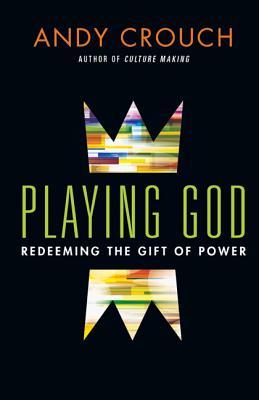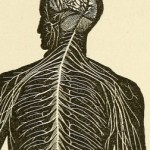[ This post is part of the Patheos Book Club discussion of Playing God ]
I recently had the opportunity to interview Andy Crouch about his new book PLAYING GOD: REDEEMING THE GIFT OF POWER (IVP Books, Fall 2013). My interview appears in the current print issue of The Englewood Review of Books, but there was a sizable chunk of the interview that had to be trimmed to fit the allocated space, so I thought I would share a couple of questions related to the Anabaptist tradition here. Andy’s responses to these questions was not necessarily what I would have expected.
CS: Can you briefly summarize your understanding of what the nature of power is?
AC: So I think, where you want to start if you’re looking for a Biblical depiction of power is with creation and new creation. And in many ways, my deepest argument in this book is with people who think that the deepest form of power is violence. Violence is obviously a real form of power; it’s the power that was brought to bear on Jesus on the cross. The overall biblical witness, however, is that there’s a power deeper than violence and that’s the power of creation. And that power, too, is available to us and is part of what we have to steward. We don’t just have to limit our involvement in violence, but we have to ask, “How am I maximally involved in creating environments that flourish?”
CS: Yes, that definitely makes sense, and it seems to fit with the larger witness of church history that the power of resurrection transcends the power of death and violence.
AC: Yes, exactly. And, for example, the Anabaptist tradition is very important because its refusal to participate in state-sponsored instruments of force,violence and deadly brutality is a deeply consistent witness that there’s another power at work in the world. Thus, no one who wants to follow Jesus can NOT take the Anabaptist tradition seriously, but whatever we think about these kind of typical edge cases where the state claims the right to take a life, that’s where Anabaptist diverge from other Christians. It seems to me that becoming a disciple of Jesus is coming to believe that the power at work in creativity and love is so much more powerful than violence as to render whatever death the systems of the world can deal just not even worth fearing. We are freed therefore to a much greater risk of creativity and love than we’d be able to venture if we were still trapped in the fear of death.
CS: Absolutely, and it seems like the ideas of power that you’re describing here leave open the possibility of some sorts of collaboration with certain types of powers and authorities that at least some historical strains of Anabaptism would be adamantly opposed to.
AC: That’s a really good observation. I think that’s tied into my thinking and writing about culture: the more I thought about it, the less satisfied I was with the tendency of Christians, not just Anabaptists, by the way, but all kinds of Christians, to try to separate ourselves from culture and to create kind of parallel Christian versions of it. There’s a couple things that seem to happen here. One is that it seems like worldliness seeps in anyway. It seeps into the most radically separatist communities in its own way. I almost think it’s more honest to just realize that we have been placed in this world, and Jesus specifically prays that his disciples would not be taken out of this world in the so-called high priestly prayer in the upper room in John 17. And instead the more honest thing would be to realize that we are, for better and for worse, implicated in the structures of this world, but we are not here to just become assimilated to it, and you can be just as assimilated in a separatist—there’s a separatist version of assimilation which superficially you appear completely cut off from the structures of culture, but at a deeper level many of your deepest assumptions are actually shaped either by the world around you, or by a kind of a tit-for-tat, one-for-one reaction to the world around you. And I think the challenge of resisting assimilation goes much deeper than non-participation in certain structures and goes much more to why am I present in these places and what am I hoping for and what am I fearing as I participate in public life, in government, in business, in commerce, in the worldly arts. I think I’ve become persuaded that we need to be vigilant about worldliness, but in some ways you have to be more vigilant about it the more separatist you are.













